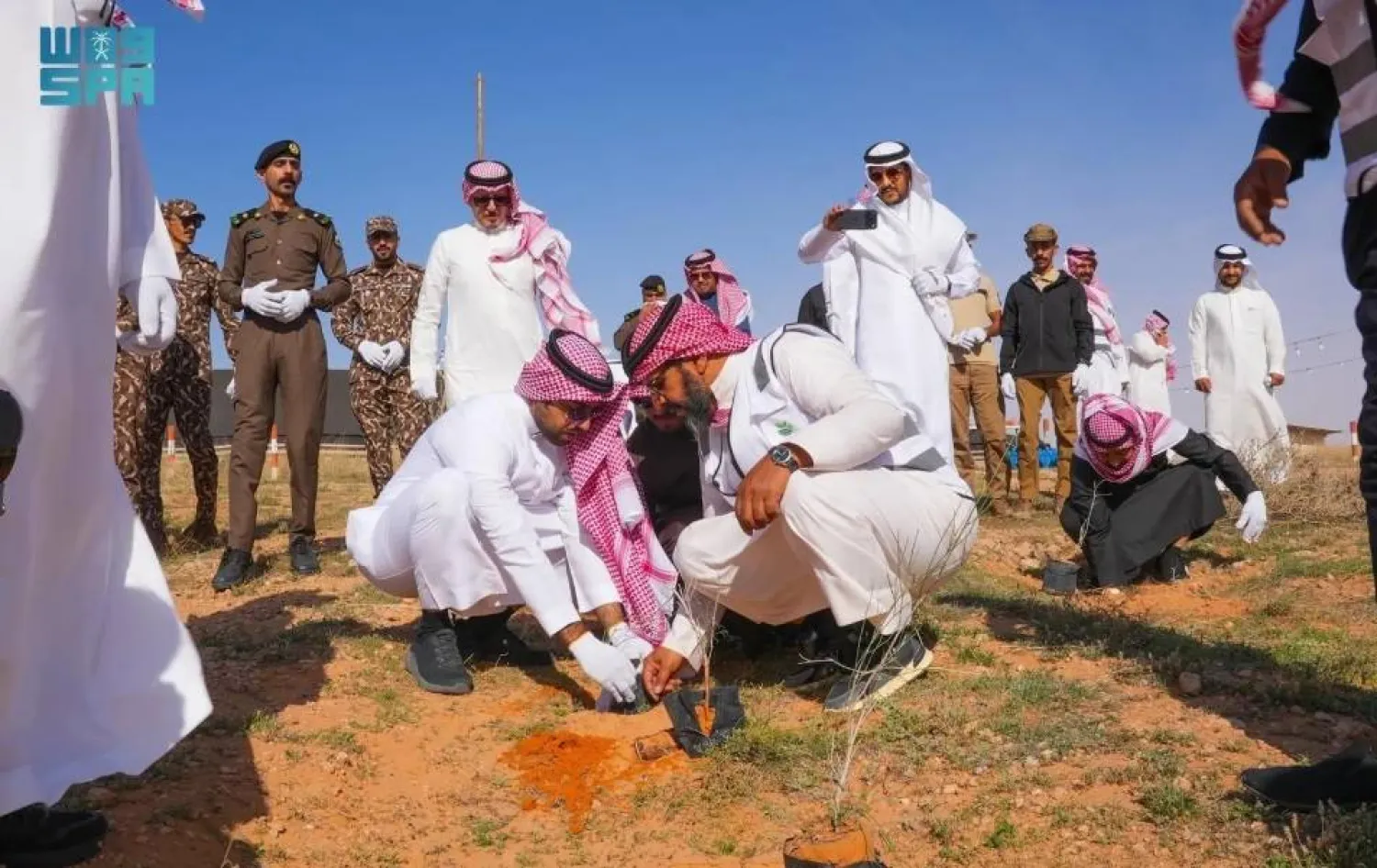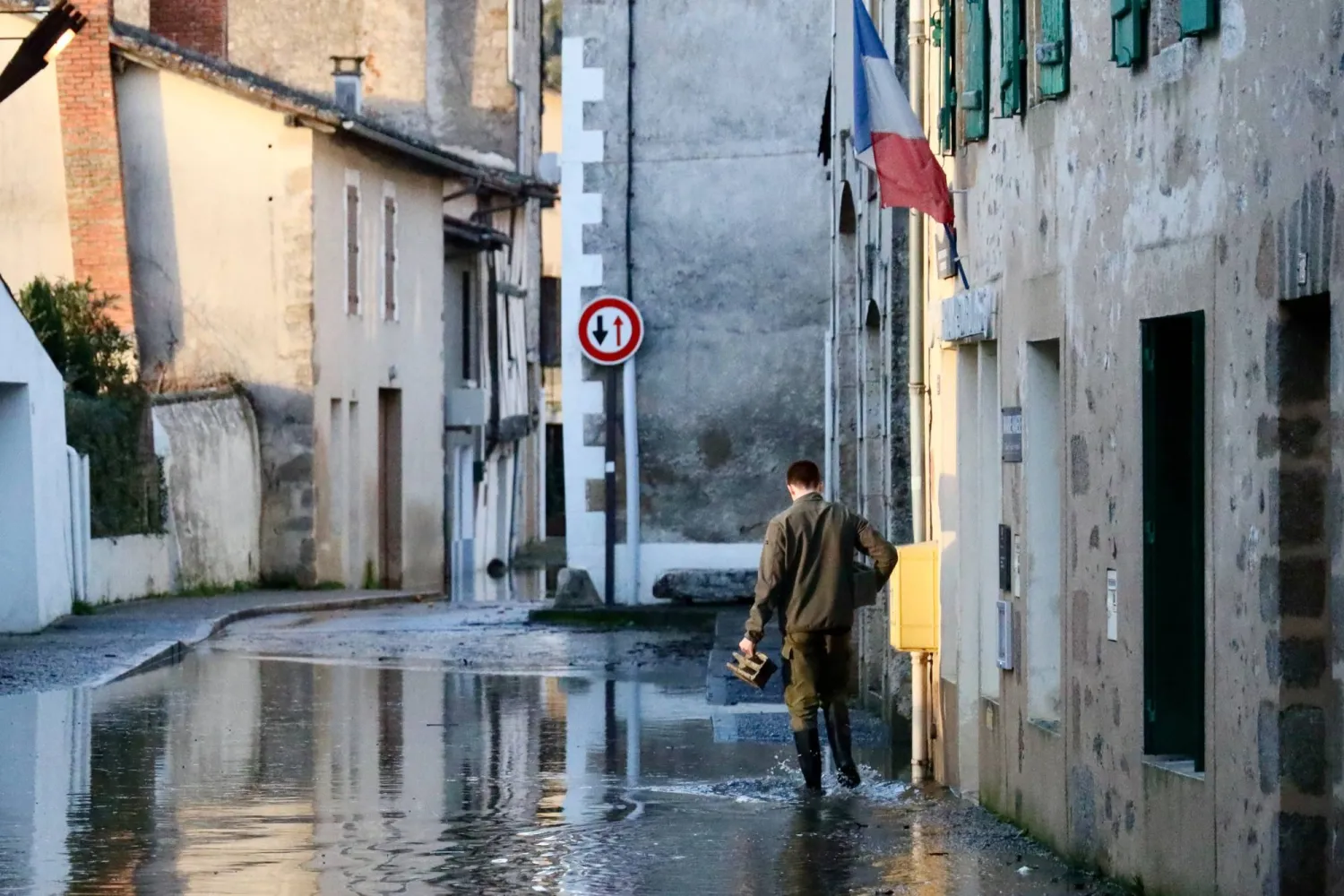In 2015, Israeli Prime Minister Benjamin Netanyahu sparked an uproar when he claimed that Mufti Haj Amin al-Husseini was the one who had urged Hitler to annihilate the Jews, drawing a wave of criticism.
But it turns out that there was another side to the story that also escaped mention by Netanyahu, the historian’s son: the forgotten role played by thousands of Palestinians who did not heed the Mufti of Jerusalem’s call to support the Axis countries, and went so far as to take up arms to fight the Nazis, often shoulder to shoulder with young Jews from Mandatory Palestine, reported the Israeli Haaretz on Friday.
Professor Mustafa Abbasi, a historian at Tel Hai Academic College, has spent years tracing their story. Having recently published an academic article on the subject, this week he suggested an opposite narrative to the one that Netanyahu put forward.
The prime minister had sought to paint the Palestinians as supporters of the Third Reich, but Abbasi says, “The Mufti did not find a receptive audience among the Palestinians for his call to aid the Nazis. Not at all.”
Many studies have been published about Jewish volunteerism in the war against the Nazis, which reached a peak with the formation of the Jewish Brigade. But “the thousands of Arab volunteers are hardly mentioned and sometimes the record is often distorted,” Abbasi says.
In an article in the latest issue of the periodical Cathedra (“Palestinians Fighting the Nazis: The Story of Palestinian Volunteers in World War II”), he explains why these Palestinian fighters have been left out of the history books.
On the one hand, Zionist historians naturally placed an emphasis on the role played by Jewish volunteers in the fight against the Nazis. On the other hand, their Palestinian counterparts were focusing on the struggle against British rule and were not eager to glorify the names of those who cooperated with Britain not so many years after the British put down the Arab Revolt of 1936-1939, and thereby indirectly helped the Jews establish a state.
“Neither side wished to highlight this subject,” says Professor Abbasi. “But I think it’s the historian’s job to be faithful to the sources and to try to describe history as it was, without being hostage to any national narrative that would limit him and prevent him from writing history freely.”
No organization was ever established to commemorate the actions of these Palestinian volunteers.
“Many of them were killed and many others are still listed as missing. But no memorial has ever been established for them,” says Abbasi according to Haaretz. In fact, the records of the Palestinian volunteers, along with much of their personal archives and papers, have disappeared.
Over the last few years, Abbasi was able to learn of their story in Palestinian newspapers from the Mandate era, in memoirs and personal journals, and through interviews he conducted with a few of the last remaining volunteers who are still alive. He also collected material from various British archives, from the Zionist Archive, and the archives of the Haganah and the Israeli army.
Abbasi estimates that about 12,000 young Palestinians enlisted in the British Army in World War II. Hundreds became POWs, many others (the exact figure is unknown) were killed.
“Compared to other peoples, this is not an insignificant number,” he says.
Initially, the Palestinian and Jewish volunteers served in mixed units. “They received training and drilled at the same bases and in many instances fought shoulder to shoulder, and were also taken prisoner together,” says Abbasi.
The proximity of the Jewish and Palestinian fighters sometimes led to unusual outcomes, as in the case of Shehab Hadjaj, a Palestinian who enlisted in the British Army, was taken prisoner in Germany and died in 1943. To this day, he is listed at Mount Herzl as “a casualty of Israel’s wars” because someone mistakenly thought his surname indicated that he was Jewish.
“Relations among the fighters were generally good, and if there was any friction it was mainly over service conditions, like mail and food,” Abbasi says. However, there were certain key differences between the two groups, too. For example, while the Jews were united in their goal of fighting the Nazis to promote the establishment of the Jewish state, the Palestinians “had no clear national agenda,” Abbasi writes. For this reason, unlike the Jews, they did not seek to form separate Palestinian units and there was no “Palestinian Brigade” parallel to the Jewish Brigade, in which thousands of Jews from Mandatory Palestine served.
The Mufti of Jerusalem was never truly a leader of the Palestinian people.
“He left Palestine for a decade in 1937. What kind of leader abandons his people at such a time?” Abbasi wonders. “He had no influence on the public. He was detached and the public was already tired of him and his methods. They didn’t see him as a leader,” he says. “Anyone who says differently is distorting history.”









